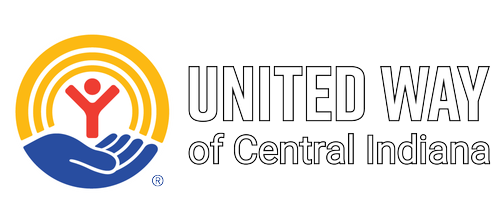On TV, drug busts may look like the most dangerous situations law enforcement can face. In real life, a different crime leads to the death of almost twice as many of our country’s police officers: Domestic violence.
According to an FBI report, 80 police officers died from 1988 to 2016 while making drug-related arrests. Yet, during that same time, 136 officers died responding to domestic violence calls.
One of our own, Indianapolis Metropolitan Police Officer Breann Leath, has sadly become a statistic for 2020.
2020: Officer Breann Leath, Indianapolis
Leath came from a family of public servants and had dreamed of being a police officer since she was a little girl. Her mother was a public safety dispatcher and her father a reserve Marion County Sheriff’s deputy. Their daughter, just 24, was in her third year on the department and had a child of her own.
She was shot through the doorway of an apartment while responding to a domestic violence call.
“Rather than turn away, Officer Leath turned toward the danger. She heard the call, and she went bravely toward that which could do her harm. Because she knew if she didn’t, harm may come to others,” said Mayor Joe Hogsett.
2109: Officer Tara O’Sullivan, Sacramento
The Caucasian man had a history of domestic violence and of harassing an African American family who lived next door, even brandishing a knife at their kids for riding their bikes and playing basketball.
Then, a domestic violence shelter received a desperate call from the man’s wife or girlfriend, and rookie Officer Tara O’Sullivan, 26, responded. She was helping the woman remove her belongings from the home when the man opened fire, wounding the woman and killing O’Sullivan.
2018: Officer Justin Billa, Mobile, Alabama
Officer Justin Billa arrived at an Alabama home to take into custody a man wanted for killing his ex-wife. Suddenly, shots rang out. When the SWAT team moved in, they discovered the man had killed himself – but not before shooting Officer Billa. The 27-year-old father of a 1-year-old boy died at the hospital six weeks before his third wedding anniversary.
2017: Police Chief Steven DiSario, Kirkersville, Ohio
Nurse Marlina Medrano had told the court she feared for her life. One week later, she, a nurse’s assistant and Kirkersville Police Chief Steven DiSario were all dead at the hands of an abuser who had a domestic abuse rap sheet 10 years long.
The stories go on and on. More officers were shot responding to domestic violence in 2017 than in any other type of firearm-related fatality, according to the National Law Enforcement Officers Memorial Fund.
Police-Community Partnerships
How can we better protect police who are trying to help victims? Reducing the number of domestic abuse crimes is the obvious answer. But according to a report by the U.S. Department of Justice Office of COPS (Community Oriented Policing Services), the rate of homicides by intimate partners has been declining only half as quickly as the rates of violent crime overall and of non-lethal domestic violence.
In the report, Police-Community Partnerships to Address Domestic Violence, education seems to be key. First, officers must be trained on what domestic violence is, why it occurs and why people don’t leave. Second, officers must know about victim services in the area. And third, the victim must see a seamless team working for the victim’s benefit.
A better understanding of domestic violence can alleviate some of the intense frustration law enforcement officials can feel with domestic abuse calls. As the report says:
Calls related to domestic disturbances … are some of the most difficult calls to which they must respond. Some officers are concerned about safety, some are irritated by the amount of time they know the call will take, but for others, the difficulty comes from a sincere frustration with their inability to make a difference.
Our hearts go out to the family of Officer Breann Leath, and our gratitude goes out to every police officer who responds to a call of domestic violence.
The team at Sheltering Wings has the privilege to partner regularly with local police departments and other first responders. If your department is interested in having a Sheltering Wings speaker come to a meeting, let us know. You can complete the request form and we’ll be in touch.







